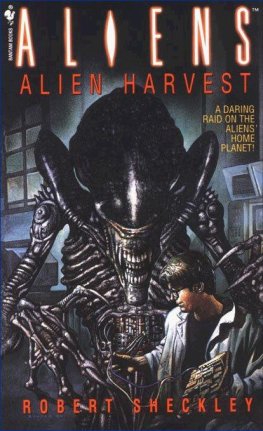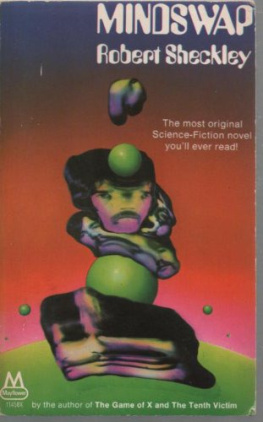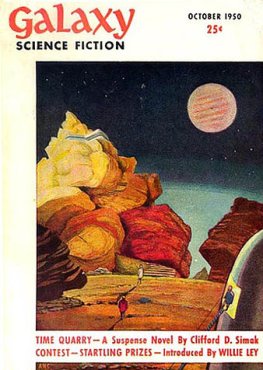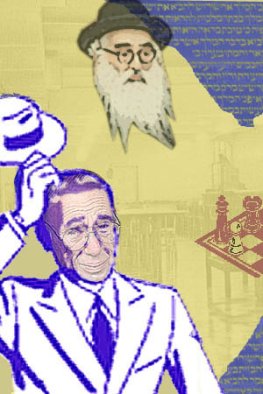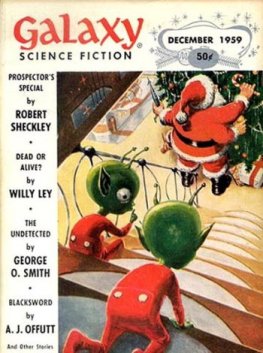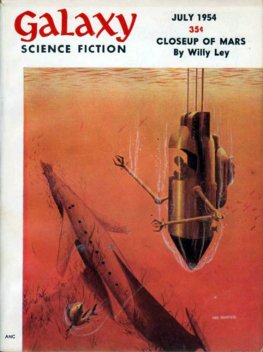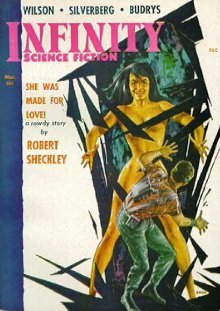Robert Sheckley - Watchbird
Here you can read online Robert Sheckley - Watchbird full text of the book (entire story) in english for free. Download pdf and epub, get meaning, cover and reviews about this ebook. genre: History. Description of the work, (preface) as well as reviews are available. Best literature library LitArk.com created for fans of good reading and offers a wide selection of genres:
Romance novel
Science fiction
Adventure
Detective
Science
History
Home and family
Prose
Art
Politics
Computer
Non-fiction
Religion
Business
Children
Humor
Choose a favorite category and find really read worthwhile books. Enjoy immersion in the world of imagination, feel the emotions of the characters or learn something new for yourself, make an fascinating discovery.

- Book:Watchbird
- Author:
- Genre:
- Rating:4 / 5
- Favourites:Add to favourites
- Your mark:
- 80
- 1
- 2
- 3
- 4
- 5
Watchbird: summary, description and annotation
We offer to read an annotation, description, summary or preface (depends on what the author of the book "Watchbird" wrote himself). If you haven't found the necessary information about the book — write in the comments, we will try to find it.
Watchbird — read online for free the complete book (whole text) full work
Below is the text of the book, divided by pages. System saving the place of the last page read, allows you to conveniently read the book "Watchbird" online for free, without having to search again every time where you left off. Put a bookmark, and you can go to the page where you finished reading at any time.
Font size:
Interval:
Bookmark:
WATCHBIRD
By ROBERT SHECKLEY
Illustrated by EMSH
When Gelsen entered, he saw that the rest of the watchbird manufacturers were already present. There were six of them, not counting himself, and the room was blue with expensive cigar smoke.
"Hi, Charlie," one of them called as he came in.
The rest broke off conversation long enough to wave a casual greeting at him. As a watchbird manufacturer, he was a member manufacturer of salvation, he reminded himself wryly. Very exclusive. You must have a certified government contract if you want to save the human race.
"The government representative isn't here yet," one of the men told him. "He's due any minute."
"We're getting the green light," another said.
"Fine." Gelsen found a chair near the door and looked around the room. It was like a convention, or a Boy Scout rally. The six men made up for their lack of numbers by sheer volume. The president of Southern Consolidated was talking at the top of his lungs about watchbird's enormous durability. The two presidents he was talking at were grinning, nodding, one trying to interrupt with the results of a test he had run on watchbird's resourcefulness, the other talking about the new recharging apparatus.
The other three men were in their own little group, delivering what sounded like a panegyric to watchbird.
Gelsen noticed that all of them stood straight and tall, like the saviors they felt they were. He didn't find it funny. Up to a few days ago he had felt that way himself. He had considered himself a pot-bellied, slightly balding saint.
He sighed and lighted a cigarette. At the beginning of the project, he had been as enthusiastic as the others. He remembered saying to Macintyre, his chief engineer, "Mac, a new day is coming. Watchbird is the Answer." And Macintyre had nodded very profoundlyanother watchbird convert.
How wonderful it had seemed then! A simple, reliable answer to one of mankind's greatest problems, all wrapped and packaged in a pound of incorruptible metal, crystal and plastics.
Perhaps that was the very reason he was doubting it now. Gelsen suspected that you don't solve human problems so easily. There had to be a catch somewhere.
After all, murder was an old problem, and watchbird too new a solution.
"Gentlemen" They had been talking so heatedly that they hadn't noticed the government representative entering. Now the room became quiet at once.
"Gentlemen," the plump government man said, "the President, with the consent of Congress, has acted to form a watchbird division for every city and town in the country."
The men burst into a spontaneous shout of triumph. They were going to have their chance to save the world after all, Gelsen thought, and worriedly asked himself what was wrong with that.
He listened carefully as the government man outlined the distribution scheme. The country was to be divided into seven areas, each to be supplied and serviced by one manufacturer. This meant monopoly, of course, but a necessary one. Like the telephone service, it was in the public's best interests. You couldn't have competition in watchbird service. Watchbird was for everyone.
"The President hopes," the representative continued, "that full watchbird service will be installed in the shortest possible time. You will have top priorities on strategic metals, manpower, and so forth."
"Speaking for myself," the president of Southern Consolidated said, "I expect to have the first batch of watchbirds distributed within the week. Production is all set up."
The rest of the men were equally ready. The factories had been prepared to roll out the watchbirds for months now. The final standardized equipment had been agreed upon, and only the Presidential go-ahead had been lacking.
"Fine," the representative said. "If that is all, I think we canis there a question?"
"Yes, sir," Gelsen said. "I want to know if the present model is the one we are going to manufacture."
"Of course," the representative said. "It's the most advanced."
"I have an objection." Gelsen stood up. His colleagues were glaring coldly at him. Obviously he was delaying the advent of the golden age.
"What is your objection?" the representative asked.
"First, let me say that I am one hundred per cent in favor of a machine to stop murder. It's been needed for a long time. I object only to the watchbird's learning circuits. They serve, in effect, to animate the machine and give it a pseudo-consciousness. I can't approve of that."
"But, Mr. Gelsen, you yourself testified that the watchbird would not be completely efficient unless such circuits were introduced. Without them, the watchbirds could stop only an estimated seventy per cent of murders."
"I know that," Gelsen said, feeling extremely uncomfortable. "I believe there might be a moral danger in allowing a machine to make decisions that are rightfully Man's," he declared doggedly.
"Oh, come now, Gelsen," one of the corporation presidents said. "It's nothing of the sort. The watchbird will only reinforce the decisions made by honest men from the beginning of time."
"I think that is true," the representative agreed. "But I can understand how Mr. Gelsen feels. It is sad that we must put a human problem into the hands of a machine, sadder still that we must have a machine enforce our laws. But I ask you to remember, Mr. Gelsen, that there is no other possible way of stopping a murderer before he strikes. It would be unfair to the many innocent people killed every year if we were to restrict watchbird on philosophical grounds. Don't you agree that I'm right?"
"Yes, I suppose I do," Gelsen said unhappily. He had told himself all that a thousand times, but something still bothered him. Perhaps he would talk it over with Macintyre.
As the conference broke up, a thought struck him. He grinned.
A lot of policemen were going to be out of work!
"Now what do you think of that?" Officer Celtrics demanded. "Fifteen years in Homicide and a machine is replacing me." He wiped a large red hand across his forehead and leaned against the captain's desk. "Ain't science marvelous?"
Two other policemen, late of Homicide, nodded glumly.
"Don't worry about it," the captain said. "We'll find a home for you in Larceny, Celtrics. You'll like it here."
"I just can't get over it," Celtrics complained. "A lousy little piece of tin and glass is going to solve all the crimes."
"Not quite," the captain said. "The watchbirds are supposed to prevent the crimes before they happen."
"Then how'll they be crimes?" one of the policeman asked. "I mean they can't hang you for murder until you commit one, can they?"
"That's not the idea," the captain said. "The watchbirds are supposed to stop a man before he commits a murder."
"Then no one arrests him?" Celtrics asked.
"I don't know how they're going to work that out," the captain admitted.
The men were silent for a while. The captain yawned and examined his watch.
"The thing I don't understand," Celtrics said, still leaning on the captain's desk, "is just how do they do it? How did it start, Captain?"
The captain studied Celtrics' face for possible irony; after all, watchbird had been in the papers for months. But then he remembered that Celtrics, like his sidekicks, rarely bothered to turn past the sports pages.
"Well," the captain said, trying to remember what he had read in the Sunday supplements, "these scientists were working on criminology. They were studying murderers, to find out what made them tick. So they found that murderers throw out a different sort of brain wave from ordinary people. And their glands act funny, too. All this happens when they're about to commit a murder. So these scientists worked out a special machine to flash red or something when these brain waves turned on."
Font size:
Interval:
Bookmark:
Similar books «Watchbird»
Look at similar books to Watchbird. We have selected literature similar in name and meaning in the hope of providing readers with more options to find new, interesting, not yet read works.
Discussion, reviews of the book Watchbird and just readers' own opinions. Leave your comments, write what you think about the work, its meaning or the main characters. Specify what exactly you liked and what you didn't like, and why you think so.

